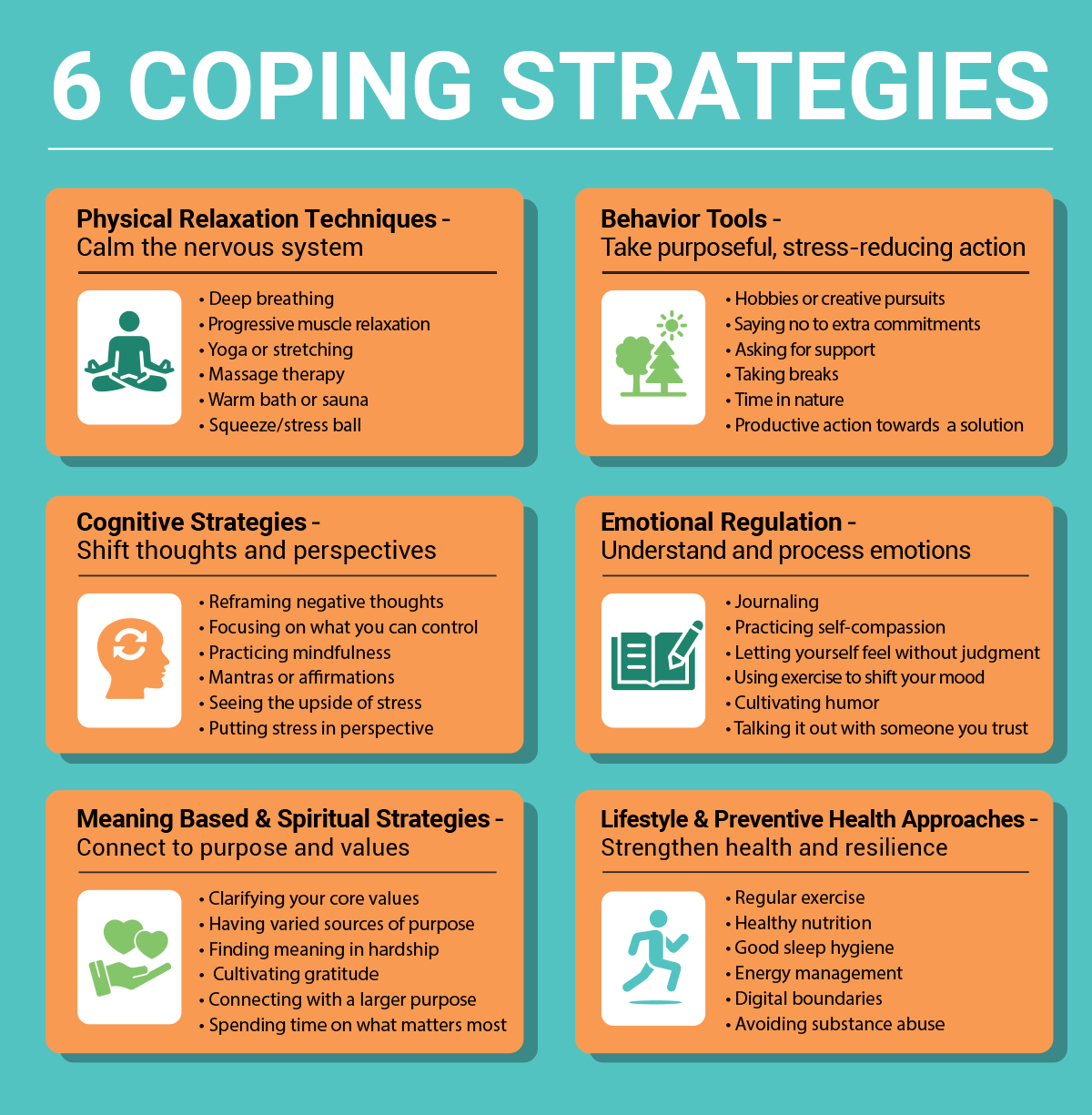A Smarter Way to Manage Stress and Build Coping Skills that Last
Big businesses don’t survive on luck. They anticipate challenges, monitor vulnerabilities, and invest in systems that help them perform under pressure. They balance short-term priorities with long-term strategy.
They study trends, revise operations, and constantly assess their inventory—what’s strong, what’s lagging, and what needs to be developed next.
They don’t wait for problems to escalate. They prepare in advance—and that preparation is what allows them to stay competitive and resilient.
You’re no different, and as the CEO of your life, you can use these stress management strategies too.
You Are the CEO of Your Life
Just like a high-functioning organization, you live in a high-demand world—with deadlines, pressure points, unexpected obstacles, and moments where your performance matters.
If you want to meet those demands—not just survive stress but grow through it—you need more than grit or good intentions. You need a clear understanding of your internal coping inventory.
What are your go-to strategies? Which ones help you reset and recover? Which leave you depleted or stuck? What’s missing from your toolkit?
That’s where coping flexibility comes in. Just as successful businesses stay agile—knowing when to pivot, when to hold steady, and when to upgrade their systems—you can build resilience by developing a broad, versatile range of stress management tools.
The Six-Part Framework: Categories of Coping Strategies
Most people develop their coping habits through a mix of environment, repetition, and trial and error. Some talk things through, others take a walk, journal, scroll their phone, binge a show, or throw themselves into work.
While many of these strategies can provide short-term relief, most people cope reactively—not proactively—and few treat coping as a skill to be managed, refined, or expanded over time.
To build true coping flexibility, it’s essential to understand the full range of options available. The six categories below offer a comprehensive framework for managing stress effectively:
- Physical Relaxation Techniques: Strategies that calm the body and help regulate the nervous system.
- Behavioral Strategies: Action-based approaches that reduce stress by increasing structure, control, or momentum.
- Cognitive Strategies: Tools that help shift how you interpret, evaluate, or mentally engage with stressors.
- Emotional Regulation Techniques: Methods that enhance emotional awareness and support healthy expression and processing.
- Meaning-Based Strategies: Practices that draw on values, purpose, and perspective to increase resilience and motivation.
- Lifestyle Tools: Habits that promote long-term energy, vitality, and well-being, making you more resilient overall.
Within each category, there are a wide range of techniques that can help lower stress and support recovery. Common examples are shown in the figure below.

How to Use This Framework
Think of this framework like a menu or a map—not a checklist. The goal isn’t to master every tool at once, but to expand your awareness and gradually build a more balanced, intentional repertoire.
Ask yourself: Are you approaching stress like a business professional would approach risk? Or are you winging it—hoping your existing tools will hold up under pressure?
Reactive learning—waiting until you’re in crisis to adopt new tools—is exactly what smart businesses try to avoid. The same logic applies to you. Start now, before you need those tools urgently.
How to Begin: Learn by Doing
You don’t build effective coping just by reading about it. You strengthen it through practice, reflection, and lived experience. Like any skill, stress management gets better with repetition and feedback.
To get started, look at the categories above. Choose one stress management strategy you haven’t tried—or haven’t given a fair shot. Then, make a commitment to try it out in a low-stress setting.
A Personal Example: Discovering Progressive Relaxation
Years ago, I developed a cardiac rehab program at Cedars Sinai. As part of it, we hired a psychologist for stress management. She would often refer patients to an expert in biofeedback—a technique that uses real-time feedback on bodily functions (like heart rate or muscle tension) to help people gain control over stress responses.
Curious, I booked a biofeedback session for myself. It was insightful—but the real impact came afterward, when at the end of the session I was given a tape with a guided progressive muscle relaxation routine.
I started listening regularly. The calming voice and background music helped me enter deep relaxation. Over time, I no longer needed the tape—I could guide myself in minutes.
This simple practice has since became one of my go-to coping tools, even though I’d never before had any interest in using relaxation techniques for stress management. And I wouldn’t have discovered it without trying something new.
Why That Matters
You might also think certain strategies aren’t for you. But often, the most effective tools are the ones you’d least expect. That’s why trying new methods matters. It’s how you build a repertoire that’s strong, flexible, and truly your own.
In the next post, we’ll help you take inventory of your current coping tools and map them against the six-part framework. You’ll see where you’re strong, where you can grow, and how to build a more balanced system that supports you through stress—not just once, but over the long haul.
You’re the CEO of your life. Start managing your stress strategy like your future depends on it—because it does.



